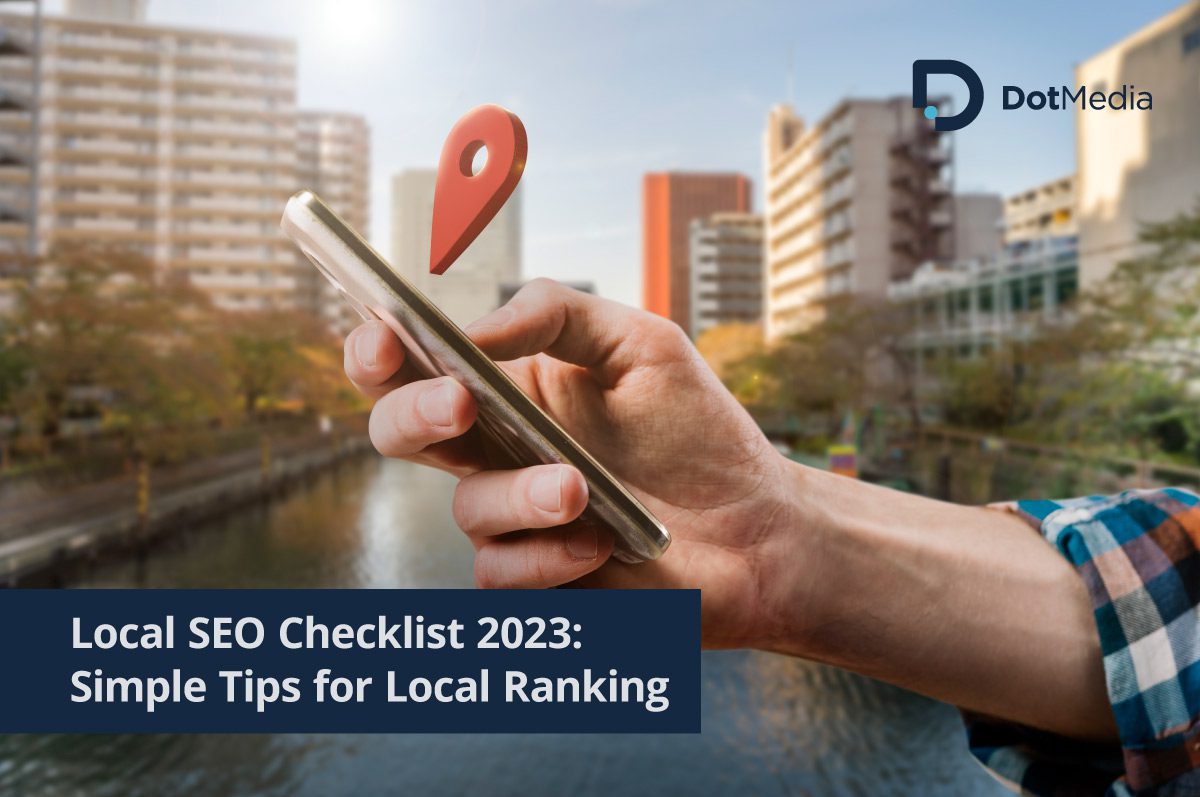How SEO and Content Marketing Work Together
Thanks to content marketing and SEO, the world of digital marketing has changed forever. Content marketing and SEO are two intertwined strategies and for digital marketing to be successful, both strategies must go hand in hand.
While there are certain differences that separate content marketing from SEO, the truth is that there is an overlap between these strategies and it is necessary to ensure that they are both fully integrated into your digital marketing approach to maximise results.
In this post, we will explain the relationship between content marketing and SEO, the content marketing tips for SEO and the importance of it in digital marketing.
What is the relationship between SEO and content marketing?
Before delving into the relationship between content marketing and SEO, it is pertinent to understand what these two terms actually mean.
Content marketing is simply the use of relevant and valuable content on your website for the purpose of driving customer action. It involves all the marketing techniques that facilitate the creation and effective distribution of online content. SEO, on the other hand, which is an abbreviation for Search Engine Optimisation is the technical process of boosting visitor traffic to your website.
Essentially, SEO is a more specific and technical approach while content marketing involves broader techniques in its implementation.
What are the elements of SEO to integrate for successful content marketing?
Google is the biggest online search engine and on a daily basis, it receives an average of 5.6 billion searches. Google algorithms are regularly improved on to ensure that every one of those search queries returns valuable and relevant results.
These search results are available throughout the web, however, Google indexes the text and ranks every content based on its degree usefulness and relevance to the search query.
As such, the user performing the search query will only get to see results which Google deems most beneficial to them.
Now for your content to be beneficial to the searchers, it must have SEO value. Below, we will analyse some of the important elements Google analyses in content when ranking it for SEO and how to integrate these elements into your content marketing strategy.
Keyword optimisation
Keyword optimisation is a vital element in SEO. Before you create any content for your website. It is important to carry out thorough research of the relevant keywords using a proven keyword research tool.
Input the relevant keyword or phrase in your content to ensure that the resulting content will be highly ranked on search engine results pages (SERPs). However, embedding the keywords isn’t just enough. It is imperative that the keywords are strategically and appropriately used.
Use long-tail keywords and avoid stuffing your content with keywords as this will only have a negative effect on SEO. Use the primary keywords in the title and ensure that it is well balanced in the body of the article.
Having a text that is ridden with unending repetitions of the same keyword is likely to read poorly. Also, try to make use of semantic keywords, which are terms that are related to the topic you are writing on.
Content that is poor in both high value and semantic keywords may be viewed as irrelevant and shallow by Google thus receiving a lower ranking.
Why quality content is important
Like earlier explained, having content filled with repetitions of keywords does not necessarily guarantee a high ranking on Google search result pages. It is important that your writing is unique, creative and fresh. In other words, focus on creating audience-centric content.
via GIPHY
Since the Hummingbird algorithm was released in 2013, Google has gradually shifted from focusing on pages with high keyword density to pages with content that actually match the user request in terms of usefulness and relevance.
Thus, focus on what your target audience is likely to be interested in.
What questions are they asking?
How and where are they asking these questions?
Conclusively, ensure that your content is influential and appropriately incorporated with keywords and phrases that will attract your target market.
Website construction
There is more to SEO than just keywords and quality content. One of such things is the construction and organisation of your website. Google will be able better scan the domain and crawl your site when the sitemap is clear and well organised. An easily navigable site is bound to enhance the user experience which consequently improves the rate of engagement with content.
Research shows that at least 79% of customers who are dissatisfied with the performance of a website are unlikely to revisit the site again. Thus, it is easier to convert your visitors to regular customers if the website is well organised, appealing and easy to navigate.
The load speed is also an essential part of site construction. Google is unlikely to give a high ranking to webpages that load slowly. Construct your site to ensure an excellent load speed for a higher ranking.
Additionally, ensure that you use the proper tags in your content including title tags and header tags. Beyond categorising the content in smaller chunks for the readers, it also makes it easier for the search engine to scan your site. Headings and subheadings will help the reader understand the content of the web page before they even delve into it.
Online readers tend to have short attention spans so it is unlikely that they will stick around to read long paragraphs. You can also input image tags and captions where it is necessary. The goal is to create a format that enhances readability.
Mobile optimisation
The number of mobile phone users is at an all-time high and unsurprisingly, research shows that more searches are now being performed on mobile devices than on PCs. It goes without saying that it is absolutely important to ensure that your website is optimised for mobile devices if you want to improve SEO.
One of the most crucial requirements for mobile optimisation is having a responsive website design which can easily be adjusted to any screen size.
Google uses a mobile-first algorithm which means that your mobile optimisation will affect how your website is ranked rather the user makes a search query on mobile or desktop. Mobile optimisation means that the mobile user experience should be as flawless as it would be on a desktop.
It should load well on smaller screen, be easy to navigate with fingers (zoom and pinch) and pop-ups that may block the content or disrupt the experience should be avoided. In a mobile-first age, creating a site that works for users on mobile is vital for SEO.
Inclusion and importance of backlinks
Credibility is an essential factor in SEO and one way you can boost your search engine rankings and visitor traffic is by linking high authority and trustworthy sites to your content. This will help Google see your content as credible which is bound to positively impact your search engine rankings.
However, when link building, it is important to ensure that the link highlights the phrase relevant to the website the user will be redirected to. To illustrate, let’s say you need to add a link to this sentence;
“It is absolutely important for bloggers to understand how to optimise a website for SEO”
You would want to add the link to the italicised part of the text as shown below;
“It is absolutely important for bloggers to understand how to optimise a website for SEO”
The importance of SEO in content marketing
Below, we will outline the importance of SEO in content marketing;
Higher ranking
Your ranking on Google will determine your position on search engine result pages (SERP) which plays vital role invisibility. Essentially, the higher your ranking, the higher your position on SERP.
According to statistics, the top three links alone on SERP average 60 percent of the traffic from search results. Essentially, your website needs to be highly ranked by Google if you want visibility that will bring clicks and visitors.
This is where SEO comes in. If your website has audience-centric and valuable content embedded with high-value keywords, Google’s algorithm will recognise it for the value it offers and will rank it higher.
Thus, when users make search queries relevant to your business, Google will deliver your website as one of the useful and relevant results. Basically, focusing on SEO is an excellent way to work your business to the top of SERP.
Build your brand with content marketing
A strong online presence can help you build your brand and content marketing via SEO is perhaps one of the most efficient ways of building your brand. Consumers tend to use the internet a lot to search for products and services and they rely heavily on Google search results for their decision making.
If your website is optimised for search engine, it will regularly show up in search results related to your business and the more frequently your business appears on search result pages, the more familiar your prospective consumers will become with your business.
Essentially, SEO can help you build an online reputation that precedes you to help you build an easily recognisable brand which will enhance customer retention and attract new ones.
Boost the traffic to your website
A higher ranking on SERP puts you in a better position to boost the traffic to your website. SEO practices like mobile optimisation and optimising your header tags as well as your meta descriptions gives the searcher an idea of what the content offers to help them determine if it will address their needs.
Therefore optimising these elements, in combination with a high website ranking can convince the user to click on your link, thus increasing your traffic. The more people click on your website, the more your traffic rate is boosted. More traffic means more visitors which could lead to an increase in revenue growth as your visitors can eventually become regulars.
It is also pertinent to understand that SEO helps you focus on what your target audience wants to see. Thus your content will be better tailored to suit your prospective customers. You should not underestimate the importance of content that engages users in the conversion of prospects to consumers.
Business growth
The amazing thing about digital marketing is that it makes you visible to anyone on the internet, anywhere in the world. Unlike traditional marketing strategies like billboards, radio and television ads, which are grossly limited to your local area, with SEO, your business can be expanded to areas far beyond your immediate geographical region.
Essentially, people from outside your country and continent will be able to read your website and do business with you if the situation calls for it.
By optimising your website for SEO, you create a site that will rank highly on search results pages for users anywhere in the world, whether it is for the person next door or a prospect in another continent, ten thousands of miles away.
Thus SEO doesn’t just bring out more traffic, it widens your reach so your business can expand to a level that would otherwise have been impossible.
Conclusion
Content marketing can be very successful if SEO is properly implemented. However, it is important to understand that SEO does not produce immediate results.
You will need to invest in SEO consistently for at least six months before you begin to see the impact of this strategy.
However, the long term benefits of SEO are definitely worth the effort and dedication.
We hope this helps give an overview as to How SEO And Content Marketing Work Together.
Do get in touch if we can help with any of the subjects mentioned in this article.





